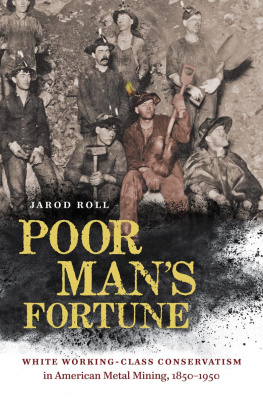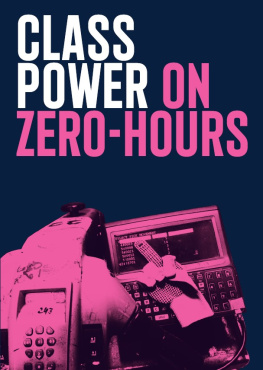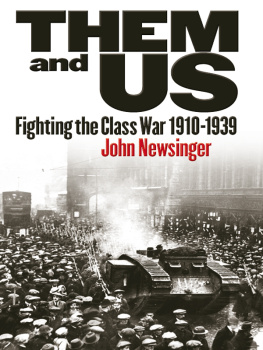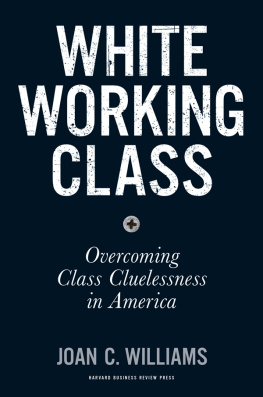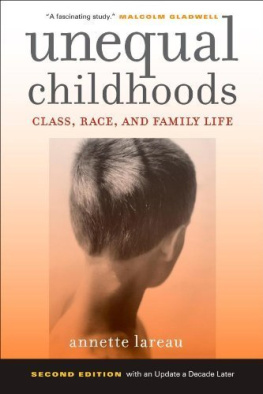WHITE, POOR AND ANGRY
To Rachel Stewart
White, Poor and Angry
White working class families in Johannesburg
LIS LANGE
Council on Higher Education
South Africa
First published 2003 by Ashgate Publishing
Reissued 2018 by Routledge
2 Park Square, Milton Park, Abingdon, Oxon OX14 4RN
711 Third Avenue, New York, NY 10017, USA
Routledge is an imprint of the Taylor & Francis Group, an informa business
Copyright Lis Lange 2003
Lis Lange has asserted her right under the Copyright, Designs and Patents Act, 1988, to be identified as author of this work.
All rights reserved. No part of this book may be reprinted or reproduced or utilised in any form or by any electronic, mechanical, or other means, now known or hereafter invented, including photocopying and recording, or in any information storage or retrieval system, without permission in writing from the publishers.
Notice:
Product or corporate names may be trademarks or registered trademarks, and are used only for identification and explanation without intent to infringe.
Publishers Note
The publisher has gone to great lengths to ensure the quality of this reprint but points out that some imperfections in the original copies may be apparent.
Disclaimer
The publisher has made every effort to trace copyright holders and welcomes correspondence from those they have been unable to contact.
A Library of Congress record exists under LC control number: 2002032691
ISBN 13: 978-1-138-72667-3 (hbk)
ISBN 13: 978-1-315-19099-0 (ebk)
Contents
Had it not been for Abebe Zegeye and, indirectly, Robert Kriger, this book would have never been published. My thanks to both of them for their timely intervention.
Almost four years have gone by since I finished my thesis. In the intervening years my life has changed so much that I am in many senses a different person from the one who wrote the thesis. This change has at least two consequences. On the one hand, although the basic argument of the book does not differ from what I wrote in the thesis, there are some marked differences in the theorization of both the problem and of the historians work. On the other hand, my intellectual and personal debt has both increased and diversified.
I am as ever in debt to the organizations that funded my research at different stages of the approximately seven years I took to complete my PhD. These are the Anglo American and De Beers Chairmans Fund, the Oppenheimer Memorial Trust, the International Federation of University Women and the SEPHIS project of the University of Rotterdam. To all of them goes my sincere gratitude for their support.
The University of the Witwatersand provided me with a senior bursary for several years but fundamentally gave me the opportunity to work with Charles van Onselen who was for seven years my supervisor. Although I never had any doubt about how privileged I was for the opportunity to work with a historian-craftsman of van Onselens stature, it is only with hindsight that I realize how much he moulded me. He was endlessly patient but also endlessly demanding. I am deeply grateful for his unmitigated search and demand for excellence, his rigour and his brutal intellectual discipline. Not so long ago I met a philosopher-cum-viola player who mentioned that before starting to play a piece he would listen to the best available recording to learn how it should sound. In similar fashion prior to writing any of the chapters of this book, as with the thesis previously, I read and re-read Charles van Onselens books. Needless to say that knowing how history should sound does not mean for a second that this book so sounds. Simply, I have tried.
One of the reasons why I did not publish this book earlier was because I did not have the time to work on it. For four years I stopped, at least in practice, being a historian so as to take part in a project aimed at reconfiguring the production and funding of research in the social sciences and humanities in South Africa. The stimulating intellectual environment of the Centre for Science Development opened for me new areas of inquiry and different ways of looking at academic work, research and society. I am especially grateful to Prem Naidoo, who not only taught me the profound meaning of development and its value for individuals and societies but also gave me his friendship and his trust. Mala Singh has to assume responsibility for having re-ignited the theoretical and philosophical flame in me. Her demand for rigour can only be measured by her intellectual integrity and generosity with her ideas. Working with her is a tall order amply compensated by the gift of her friendship.
Through both Mala Singh and Prem Naidoo I met a group of people who make critical intellectual engagement a way of living, and who influence my life and my thinking by the way they live and think. Among them, I owe a particularly large personal and intellectual debt to Enver Motala.
Jutta Van Dalsen has freed me from myself enough to be able to write without too much fear.
Rachel Stewart has given me the rootedness necessary to grow and the love and companionship to make life worth living. She and ten year-old Puleng have had to bear the brunt of my obsession with this book, not to mention in Rachels case the editing of the chapters. To both of them go my love and my gratitude.
Thanks are due to Verso Books for permission to quote from D. Roedigers Towards the Abolition of Whiteness, and to Johns Hopkins University Press for permission to quote from H. Whites The Content of the Form.
The Anglo-Boer War, latterly referred to as the South African War, like all nationalistic and colonial wars was a fundamental episode in the construction of the identity of the people at war. In the years leading to the war, during it and immediately afterwards, British and Afrikaner cultures, experiences and traditions as well as political interests and ideologies were at work to define the identity and behaviour of the enemy, and therefore the nature and limits of the political and social interactions between the warring factions.
The books historical narrative starts on the eve of the South African War with the questions raised by a story of the baptism of two children. In 1898, a year before the outbreak of the South African War, William Kirby, a selfemployed cab owner who lived in Fordsburg with his wife, Elizabeth, and two children, asked his colleague, Stefanus van Niekerk, to be godparent to his third child, a boy, who was to be baptized in the Anglican Church of the neighbourhood, the Church of Christ. Stefanus, who also lived in Fordsburg, accepted the honour and a few years later, in 1903, he and his wife Phoebe had their own child baptized in the same church.
Here was an English working class family, the Kirbys, sealing a relationship with an Afrikaner family, the van Niekerks, through the baptism of one of their children. At the same time, there was an Afrikaner family stepping outside that which history and common sense tell about Afrikaner folk and religion to have their child baptized in the Anglican Church. Why did the Kirbys choose Stefanus van Niekerk as godparent to their child instead of choosing an Englishman? Was this exceptional? Why did Stefanus accept? Why, finally, did the van Niekerks have their own child baptized in the Anglican Church instead of in the Dutch Reformed Church? In historiographical terms this book takes the example of these two families to raise questions about the interactions between the two distinct national elements that constituted the South African white working class; about the role of the churches in developing a sense of belonging and identity among immigrant people in the city, whether they came from abroad or from the countryside; about the elements of day-to-day life that made possible social interaction that seemingly went beyond and indeed defied, at least in part, nationalistic politics.


